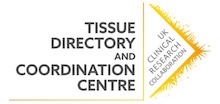Fixing ruptured ligament tissue
The UKCRC Tissue Directory and Coordination Centre (TDCC) aims to connect researchers with biobanks who can support their research. As part of a series demonstrating this work, we are showcasing case studies of successful partnerships.
Zara Smith is a PhD Researcher at the University of Manchester. In 2018 she needed ligament tissue from donors who had knee replacement surgery. The anterior cruciate ligament (ACL) stabilises the knee joint and connects the thigh and shin bones. This ligament is often ruptured during sports involving a hard stop such as tennis and basketball. The ligament does not naturally heal and treatment (through grafting) can result in repeat surgeries, causing increased distress for the patient. Zara wanted to see if they could stimulate cells from the ACL to make the materials they produce naturally in the knee.

UKCRC Tissue Directory
Zara was able to search the UKCRC Tissue directory and contact biobanks which could help. UKCRC TDCC staff were also on hand to email biobanks directly and prompt them to consider the query. Zara was able to get in touch with the Liverpool Musculoskeletal Biobank who were able to help with her request and support her research:
“The biobank were and have been extremely helpful and accommodating – I have been given lots of advice and assistance with the ethics and documentation I required. They have also advised me on ongoing experimental methods which has been incredibly useful.”
Liverpool Musculoskeletal Biobank
The Liverpool Musculoskeletal Biobank (LMB) is based at the University of Liverpool in the Institute of Ageing & Chronic Disease. It acts as a physical repository for collections of biological samples and data from consented trauma and orthopaedic patients at the Liverpool University Hospitals Foundation NHS Trust. The LMB incorporates prospective collections of samples and new collections.
The biobank were able to provide the anterior cruciate ligament samples that Zara needed for her research which were taken from knee surgery. Amanda Wood, research nurse at LMB adds: “We are able to help researchers who need samples without the need of them acquiring their own ethical approval. The LMB has helped forge collaborations both within the University of Liverpool and to external researchers both locally and internationally as we have academic and research links with the University of Malaya.”
Pioneering Research
Zara is currently writing her thesis, with the aim of finishing her PhD in the Autumn and publishing thereafter. This is the first time that anterior cruciate ligament cells have been stimulated in this way. The hope is that this technology might lead to therapies to fix the ligament without needing grafting surgeries: “The whole idea is that it could be used in a translational setting, we wanted to look for the responses of the extracted human ACL cells to specifically isolated protein fragments on aligned substrates as an indicator of whether potential development of the technology might be successful.”
Using a biobank has been a positive experience for Zara - “Going through a biobank made the whole sample acquisition process a lot easier and less time consuming than if I had gone about it myself” - who has since referred colleagues to LMB. Supporting translational research such as this is important to the LMB; “Helping researchers and students like Zara complete their projects and contribute to musculoskeletal knowledge that will ultimately help inform clinicians and improve patient care is the driving force of the LMB.”

Human ALC cells on protein fragment
functionalised aligned substrates
Zara Smith
If you are at the beginning, middle or end of your research project and could use the input of a biobank, search the directory or contact us for more information.
